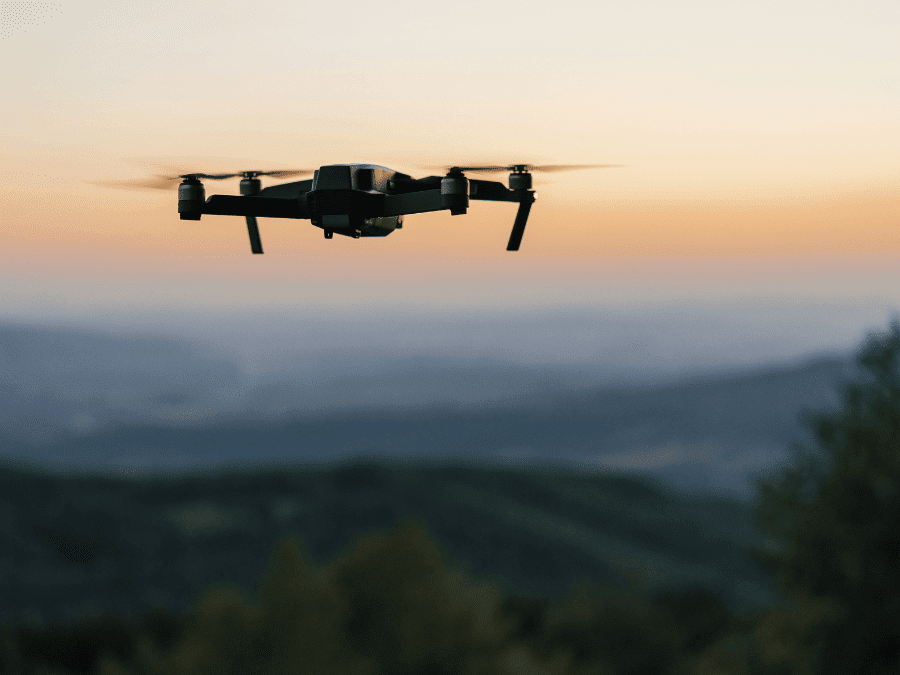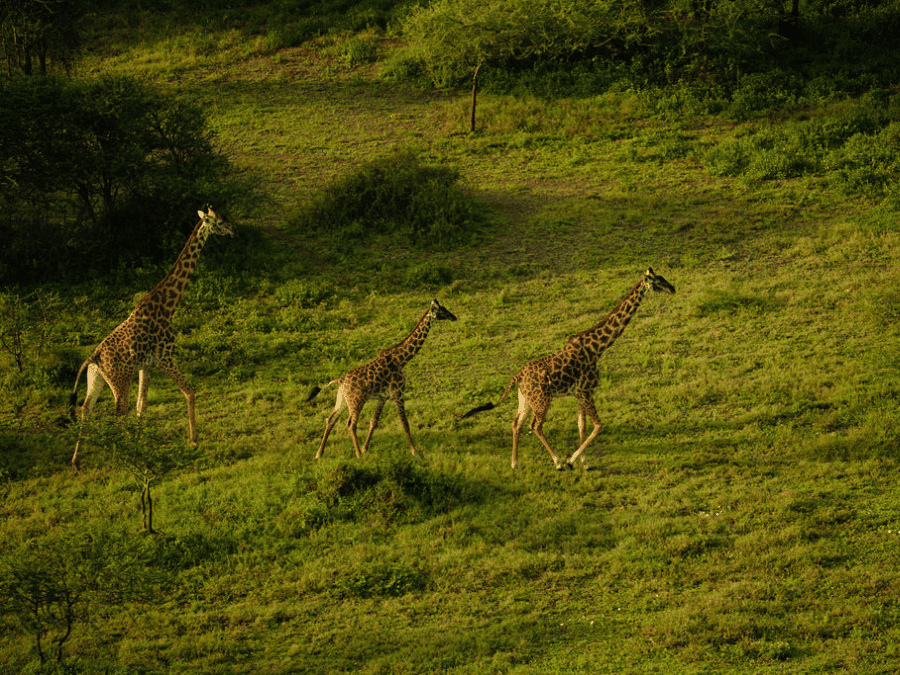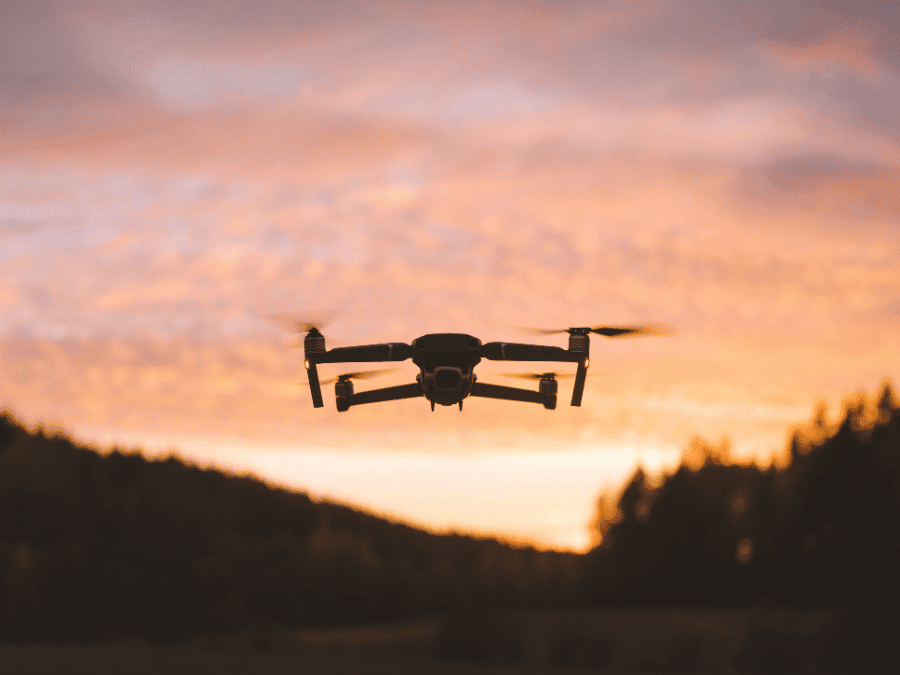As the golden sun rises over the Serengeti, a photographer eagerly unpacks his drone, ready to capture breathtaking aerial photographs of the migrating wildebeest. He powers it up, eyes full of anticipation, only to be stopped by a park ranger. “Do you have a permit?” the ranger asks. Confused, the photographer realizes he never checked Tanzania drone laws, a drone issue that could lead to fines or confiscation by security authorities.
If you’re planning to bring a drone to Tanzania, whether for stunning safari photography, commercial filming, or research, you need to know the strict drone laws, permit requirements, and national park restrictions before takeoff. It is also crucial to check import requirements before bringing a drone into Tanzania. In this guide, we’ll walk you through everything you need to not only flying a drone in Tanzania but also to fly legally and safely, ensuring your adventure is smooth, legal, and hassle-free. Let’s dive in!

Overview of Tanzania Drone Laws
Tanzania has established a comprehensive regulatory framework for drone operations, overseen by the Tanzania Civil Aviation Authority (TCAA). The TCAA is dedicated to ensuring that all drone operations are conducted safely and in strict compliance with the country’s laws and regulations. This framework is designed to protect both the operators and the public, as well as to preserve the integrity of Tanzania’s airspace.
Drone laws in Tanzania are dynamic and subject to change, reflecting the evolving nature of drone technology and its applications. Therefore, it is crucial for drone pilots to stay informed about the latest regulations. Regularly checking the TCAA website and staying in touch with local authorities can help ensure that you are always up-to-date with the current drone laws. This proactive approach will help you avoid legal issues and ensure that your drone operations are both safe and compliant.
1. Are Drones Allowed in Tanzania?
Yes, but strict drone laws regulate where and how you can operate drones, especially in national parks like Serengeti, Ngorongoro, and Kilimanjaro. If you plan to bring a drone to Tanzania for a photography safari, you’ll need permits from the Tanzania Civil Aviation Authority (TCAA) and possibly special approval from the Tanzania National Parks Authority (TANAPA). Additionally, drone insurance is mandatory for both private and commercial use, and you must comply with all insurance regulations to operate legally. Drone pilots must follow specific regulations and guidelines, including passing a knowledge and skills test, to ensure safe operation. The TCAA classifies drones based on weight and usage:
- Recreational drones (under 7kg) – For personal use (photography, travel vlogs).
- Commercial drones (7kg – 25kg) – Used for professional filming, surveys, or inspections.
- Industrial drones (over 25kg) – Used in specialized industries.
Understanding restricted airspace is crucial to know where drones can and cannot be flown.
✈ Important: If you’re planning on bringing a drone into Tanzania, check with TCAA for import requirements before arrival. For official regulations, visit the TCAA website (Last updated: January 2024).
2. How to Get a Drone Permit in Tanzania
Before flying a drone in Tanzania, you must obtain the proper permits and comply with strict regulations set by the Tanzania Civil Aviation Authority (TCAA) and other relevant bodies. The process differs based on whether the drone is operated privately or for commercial drone flights. A Tanzania drone operator is often required for commercial use to help navigate the application process. Additionally, a drone requires registration and specific approvals, depending on its purpose and classification. Authorities also categorize drones based on drone weighing, meaning heavier drones may require additional permits and safety measures. Obtaining an operator certificate may be necessary for certain types of drone operations. Below is the breakdown of the steps:
1. Registration & Approval
All drones must be registered with the Tanzania Civil Aviation Authority (TCAA) before operation. The registration process includes:
- Providing details about the drone’s make, model, and specifications.
- Submitting personal information (for private use) or business credentials (for commercial operations).
- Stating the purpose of use, such as recreational flying, filming, research, or commercial applications.
For commercial drone operations, additional approvals from authorities like the Tanzania National Parks Authority (TANAPA) (if flying in protected areas) or the Ministry of Defense (if the drone use involves security-sensitive locations) may be required.
2. Insurance Requirement
Drone insurance is mandatory for both private and commercial use in Tanzania. The policy should cover:
- Third-party liability, in case the drone causes injury or property damage.
- Loss or damage coverage, protecting against accidents, theft, or equipment failure.
Tanzanian drone operators who has completed flight training must carry proof of insurance at all times while flying their drones.
3. Special Permissions for Restricted Areas
If you plan to operate a drone in national parks, near government buildings, or any restricted airspace, you must secure additional permits. Key points to note:
- National Parks & Wildlife Reserves: Flying drones in protected areas like the Serengeti, Ngorongoro, and Kilimanjaro requires approval from TANAPA and the Wildlife Division. Unauthorized drone use in these areas can result in fines, confiscation, or legal action.
- Urban Areas & Public Spaces: Flying drones in densely populated areas or near domestic airports, military zones, and government buildings is strictly controlled. Special permission from the TCAA and security authorities is needed.
4. Hiring a Local Drone Operator (For Commercial Use)
For commercial drone activities, hiring a licensed Tanzanian drone operator is highly recommended. Local operators:
- Have in-depth knowledge of the legal requirements, including the need for an operator certificate.
- Can assist in securing necessary permits and help you obtain permission from the relevant authorities.
- Ensure compliance with regulations, including the requirement for a pilot’s license in certain cases.
- Help avoid potential fines or operational delays by navigating the legal process efficiently.
5. Compliance with Flight Regulations
All pilots before flying a drone must follow TCAA flight guidelines, which include:
- Maintaining a maximum altitude limit (typically 120 meters or 400 feet).
- Flying only during daylight hours and in good weather conditions.
- Avoiding crowded places, airports, and government buildings.
- Passing a knowledge and skills test, especially for commercial operations.
- Obtaining an operator certificate may be necessary for certain types of drone operations.
For the latest permit application procedures, check the TCAA Drone Regulations Page (Last updated: February 2018)
3. Drone Flight Rules & Safety Guidelines in Tanzania
To ensure safe drone operations, pilots must follow TCAA drone regulations: The comprehensive drone rules in United Republic of Tanzania include legal requirements for registration, permissible altitudes, insurance mandates, and respect for privacy.
🚫 Maximum altitude: 400 feet (120 meters).
🚫 Restricted areas: Airports, military bases, and government buildings.
👁 Line of sight: Pilots must keep drones within visual line of sight (VLOS). Travelers wishing to fly drones in Tanzania must obtain necessary permits and consider safety and legality, especially in national parks and urban areas.
🌙 Night flying: Only permitted with prior approval.
📷 Privacy protection: Do not film private properties without permission.
4. Recreational Drone Use in Tanzania
Recreational drone use is permitted in Tanzania, but it comes with specific regulations that must be followed to ensure safety and compliance. Recreational drone use refers to non-commercial activities, such as personal photography, travel vlogs, or simply flying for fun. Even for recreational purposes, drone pilots must obtain a permit from the TCAA before taking to the skies.
For drones weighing under 7kg, the process involves submitting an application to the TCAA, detailing the drone’s specifications and the intended use. Recreational drone pilots must adhere to all TCAA regulations, which include maintaining a safe distance from people, property, and restricted areas. By following these guidelines, you can enjoy your drone hobby while ensuring the safety of others and respecting local laws.
5. Drone Laws in Tanzania’s National Parks (TANAPA Rules)
Tanzania’s national parks strictly regulate drones to protect wildlife, ecosystems, and visitor experiences. The Tanzania National Parks Authority (TANAPA) enforces the following:
📜 Special permits required: You cannot be flying a drone in Serengeti, Ngorongoro, or any national park without TANAPA approval.
🦁 Wildlife disturbance: Drones can stress animals—violations result in heavy fines.
🌿 Environmental protection: Drone usage is limited to prevent disruptions to nature.
🛑 Visitor experience: Drones can be intrusive to tourists on safaris.

How to Apply for a Drone Permit in Tanzania’s National Parks
- Submit an application to TANAPA, stating your purpose of flying a drone and flight plan.
- Provide supporting documents, including your TCAA permit.
- Wait for approval (processing time varies).
For national park drone guidelines, visit TANAPA’s Drone Policy Page (Last updated: January 2024)
Brining a Drone to Tanzania
If you’re planning to travel to Tanzania with your drone, it’s essential to comply with the TCAA’s regulations. Drones are allowed in Tanzania, but they must be registered with the TCAA upon arrival. The registration process involves categorizing your drone by weight and intended use, which helps determine the specific requirements you need to meet.
For private and commercial use, pilots must have a valid pilot’s license. This ensures that they have the necessary knowledge and skills to operate the drone safely. Additionally, travelers must adhere to all Tanzanian laws and regulations regarding drone use, including obtaining the necessary permits and approvals for specific activities or locations. By following these steps, you can ensure a smooth and legal experience when flying your drone in Tanzania.
Staying Updated on Tanzania Drone Regulations
Since drone laws in Tanzania change frequently, it’s crucial to stay informed before flying a drone. Even for recreational flying, drone pilots must obtain a permit from the TCAA:
🔎 Visit the TCAA website for updates. 📞 Contact the TCAA or TANAPA before planning a drone flight. 📍 Consult local authorities when flying near restricted zones.
Useful Resources for Drone Pilots
Staying informed about drone laws and regulations in Tanzania is crucial for safe and legal drone operations. The TCAA website is an excellent resource, providing comprehensive information on drone regulations, permit requirements, and safety guidelines. For specific questions or clarifications, drone pilots can contact the TCAA directly.
Additionally, online forums and communities can be valuable resources for drone pilots. These platforms offer insights and advice from experienced drone operators who can share their knowledge and experiences. By leveraging these resources, you can stay updated on the latest regulations and best practices, ensuring that your drone operations in Tanzania are both safe and compliant.

Step-by-Step Summary for Flying a Drone in Tanzania
✅ Determine your drone category (recreational, commercial, or industrial).
✅ Register with the TCAA before flying.
✅ Apply for an Operational Permit if using a drone for business.
✅ Get import approval if bringing a drone from another country.
✅ Follow flight restrictions (altitude limits, no-fly zones).
✅ Apply for TANAPA approval if filming in national parks.
✅ Keep your drone within visual line of sight at all times.
✅ Stay updated on drone regulations in Tanzania.
Tanzania’s drone laws don’t need to put a damper on your adventure! By following these guidelines, you can enjoy flying a drone legally in Tanzania while respecting laws, wildlife, and privacy.